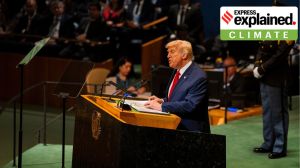People8217;s Plan gets World Bank pat
THIRUVANANTHAPURAM, JAN 2: While the People's Plan is drawing criticism from the Opposition as well as constituents of the ruling LDF, a ...

THIRUVANANTHAPURAM, JAN 2: While the People8217;s Plan is drawing criticism from the Opposition as well as constituents of the ruling LDF, a World Bank team which visited the State recently termed remarkable the achievements under the plan in the last two years.
Kerala8217;s decentralisation is probably the largest of its kind in the world, noted the team comprising Blarel, Constantino and Venkatesan. The report was compiled by Gajanand Pathmanathan, principal economist World Bank India.
The team, in its report, stated that the success of People8217;s Plan in Kerala indicated that empowerment of people was a feasible agenda in India. That such rural transformation was taking place in a state with a history of democratically elected communist governments was noteworthy.
According to the report, a governance structure extending from neighbourhood and beneficiary groups to gram panchayats, block and district panchayats had been put in place. It appreciated the level of people8217;s participation in plan formulation andimplementation.
As the World Bank team put it: 8220;Three million people 10 per cent of the state8217;s population take part in gram sabhas and other activities. This was a far-reaching, innovative and courageous new approach to rural development and local governance8221;.
The report placed on record that the People8217;s Plan reflected a profound commitment of the ruling LDF to a total change; to empower disadvantaged groups and make institutions responsible and accountable.
It stated that the state Government had radically restructured the rules governing the execution of public works, facilitating their execution directly by the local bodies concerned or beneficiary committees.The team also lauded the mechanism set up for transparency and checking corruption.
A WORD OF CAUTION: The World Bank team drew the Planning Board8217;s attention towards some important issues. It noted that there had been many circulars and Government Order on People8217;s Plan. Moreover, there were many committees and task forces whichconfused8217; the elected members of local bodies. Such a situation was appropriate for bureaucrats to thrive and tie the local bodies into knots and eventually make them subservient to the bureaucracy.The team asked the State Government to carefully monitor the issuance of orders failing which Kerala8217;s decentralisation might go the way of the previous attempts at decentralisation. Moreover, bureaucrats would have a field day interpreting rules. This would also create a situation where elected representatives of the local bodies would have to visit the State capital more often thus preparing ground for centralisation.
What made WB happy
- 01
- 02
- 03
- 04
- 05































